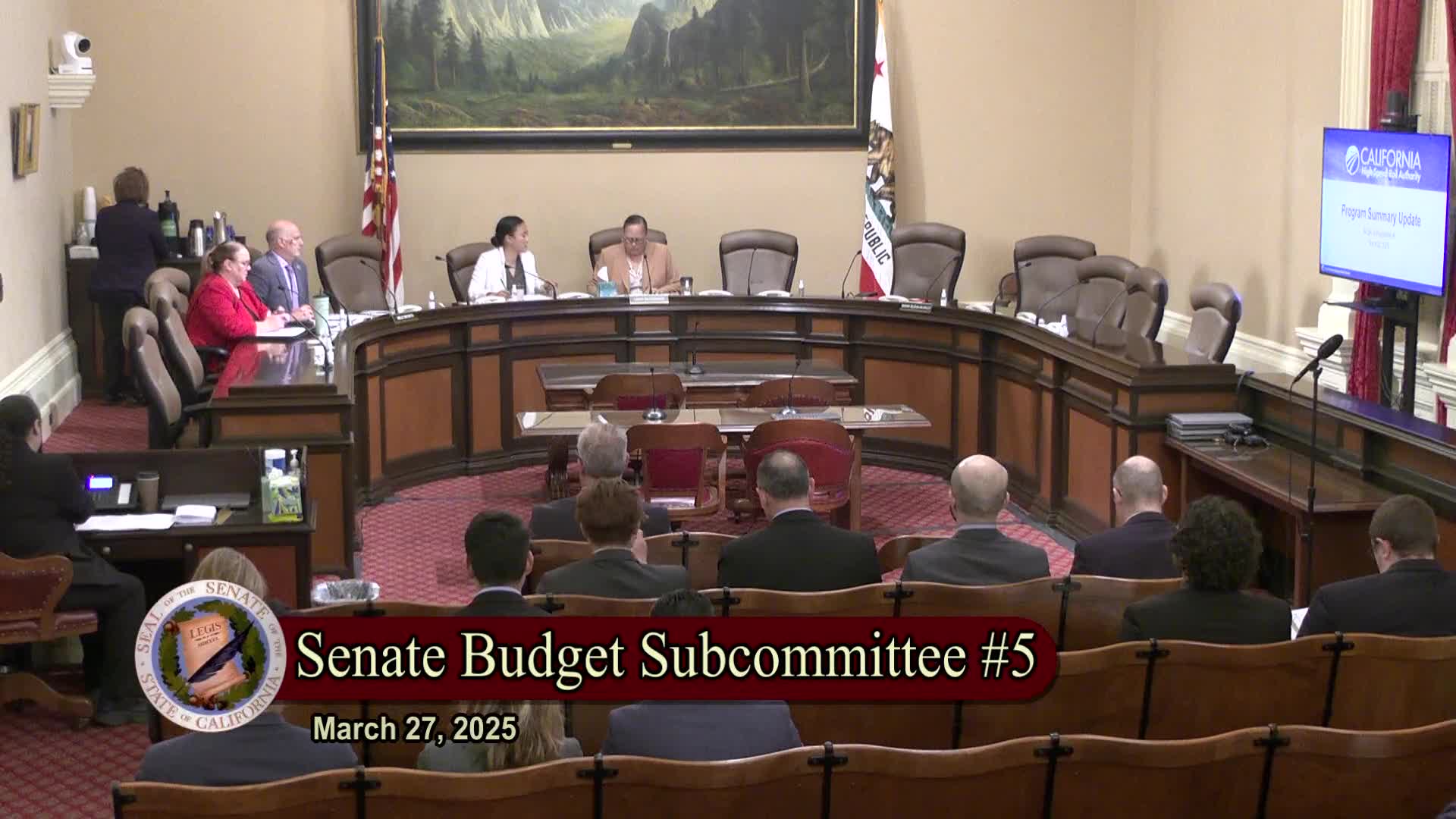Article not found
This article is no longer available. But don't worry—we've gathered other articles that discuss the same topic.
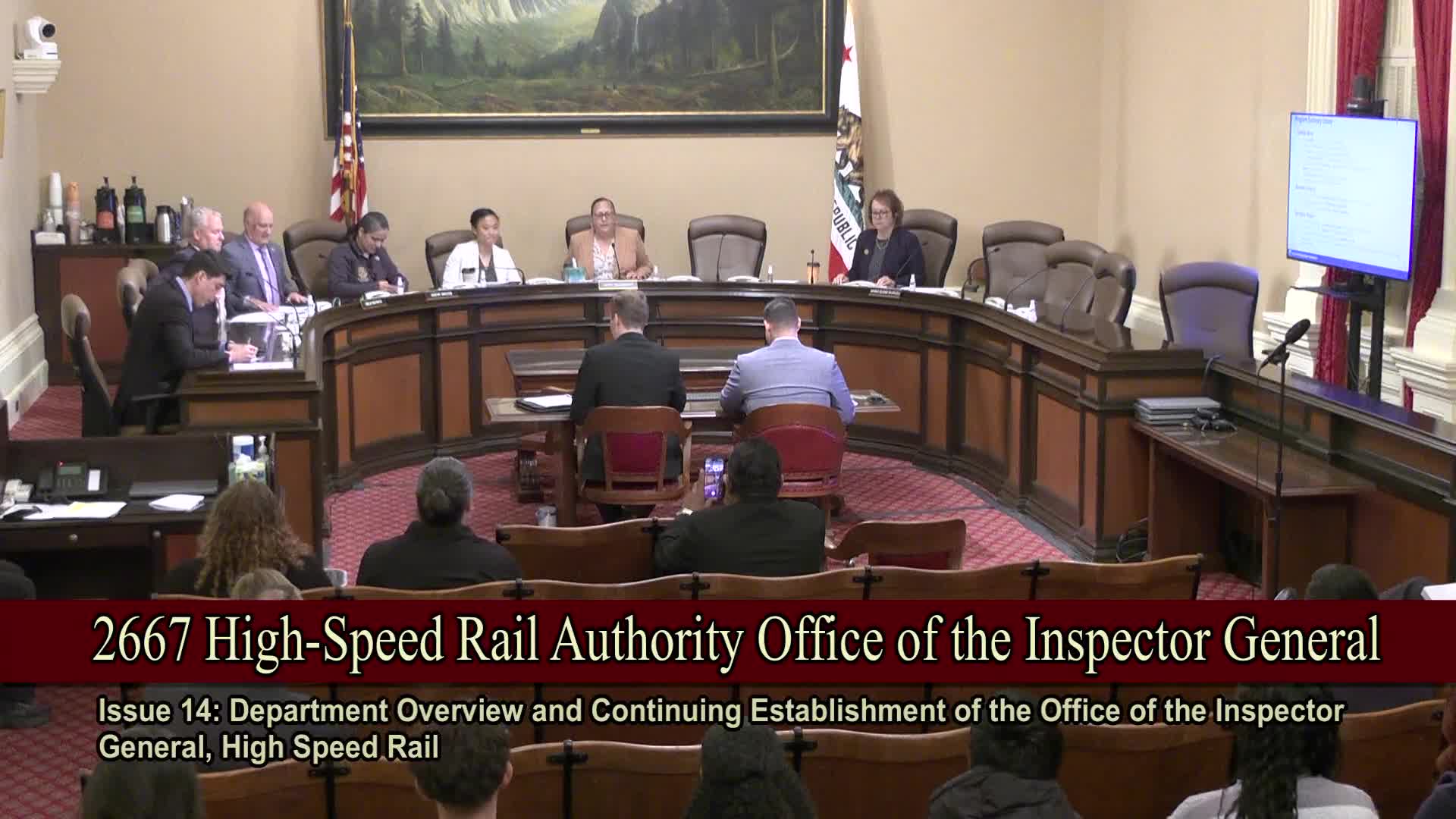
Motor Vehicle Account faces shortfall; administration proposes $166 million one‑time backfill from GGRF and Air Pollution Control funds
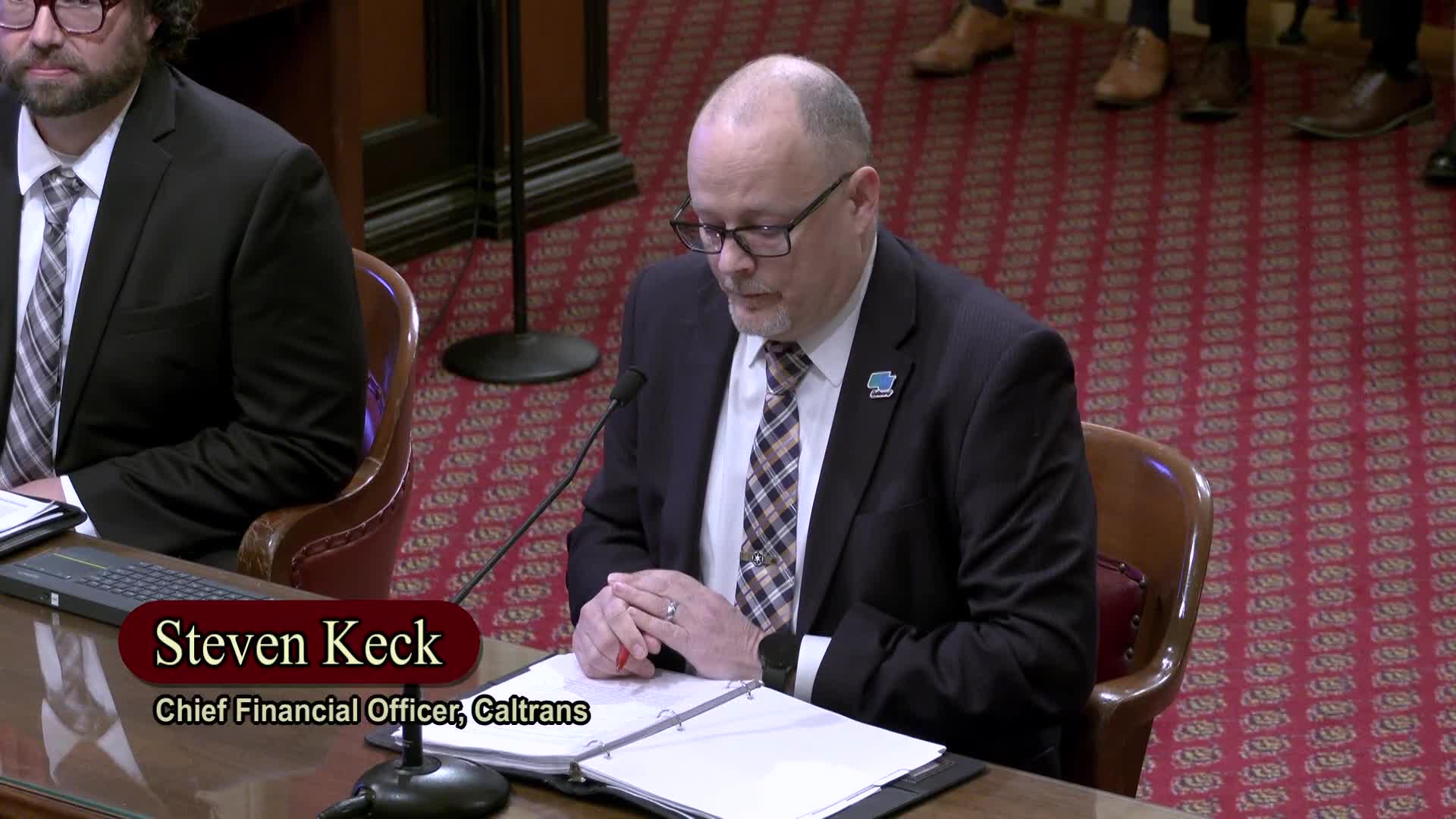
Caltrans seeks $25 million to create Clean California community cleanup and employment pathways grants; LAO recommends rejection
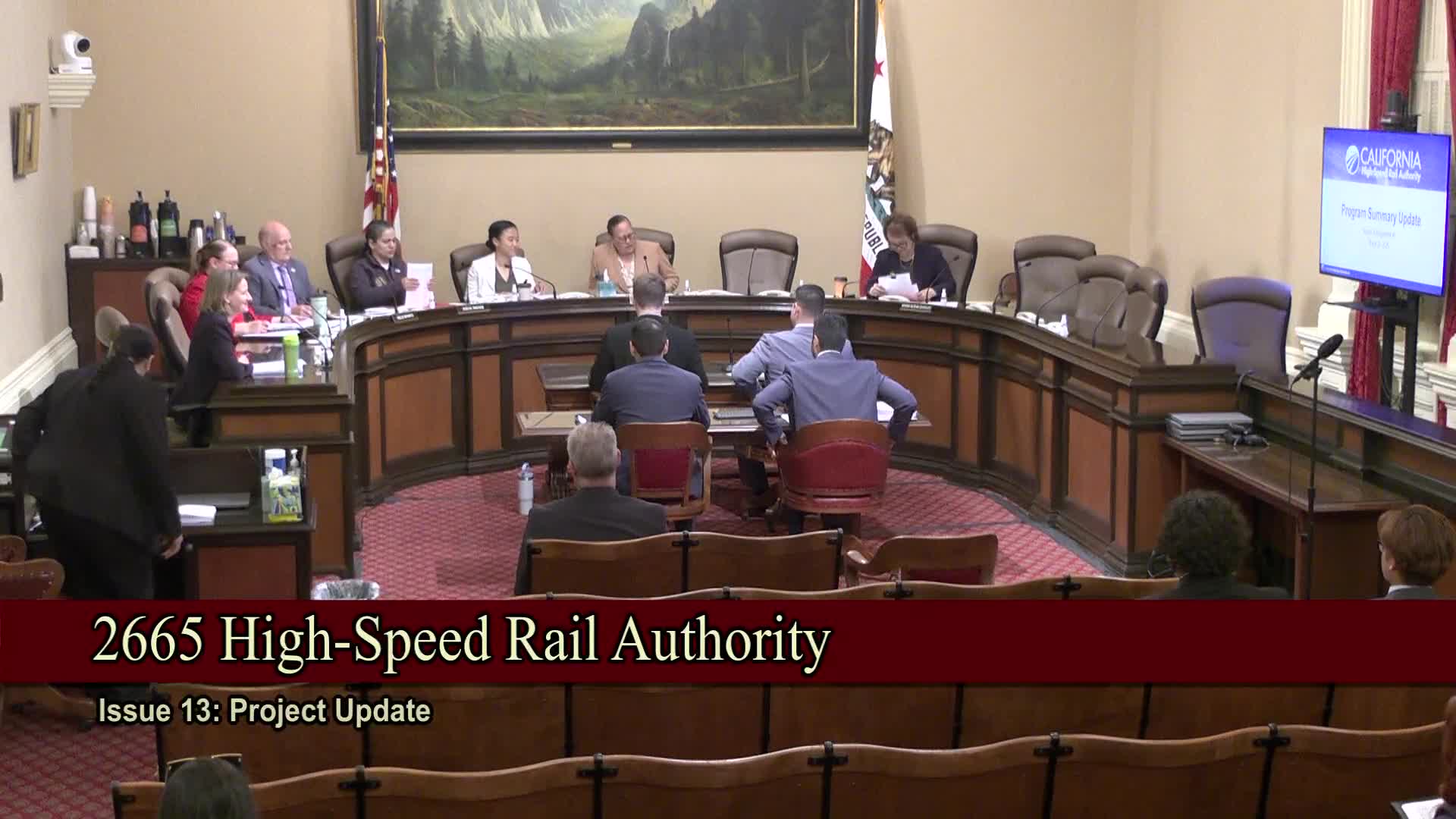
High‑Speed Rail Authority promises a summer cost, schedule update after inspector general warns of near‑term funding gap and schedule slippage
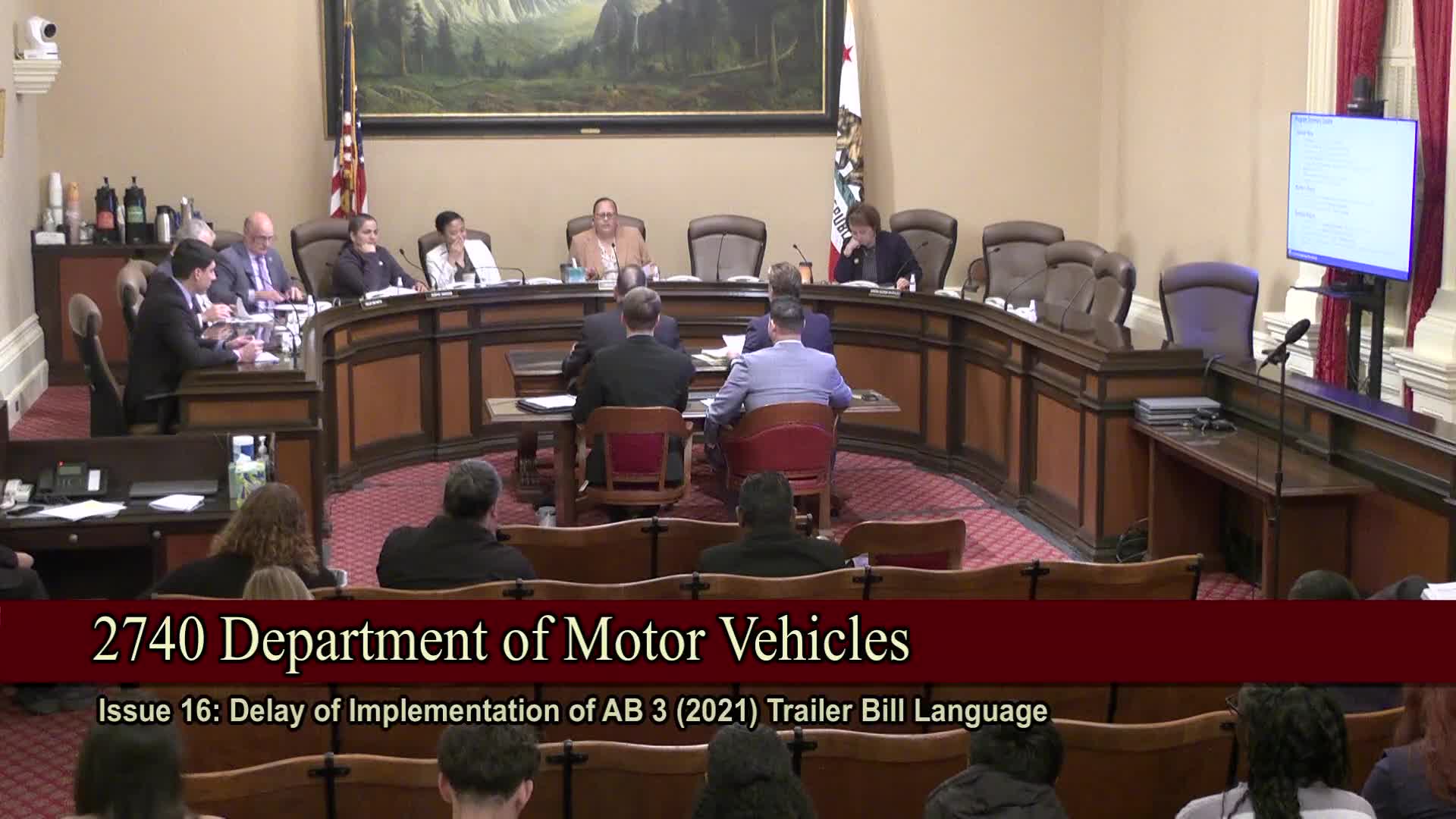
DMV requests delay to AB 3 implementation citing legacy IT work; seeks to align changes with multi‑year DXP modernization
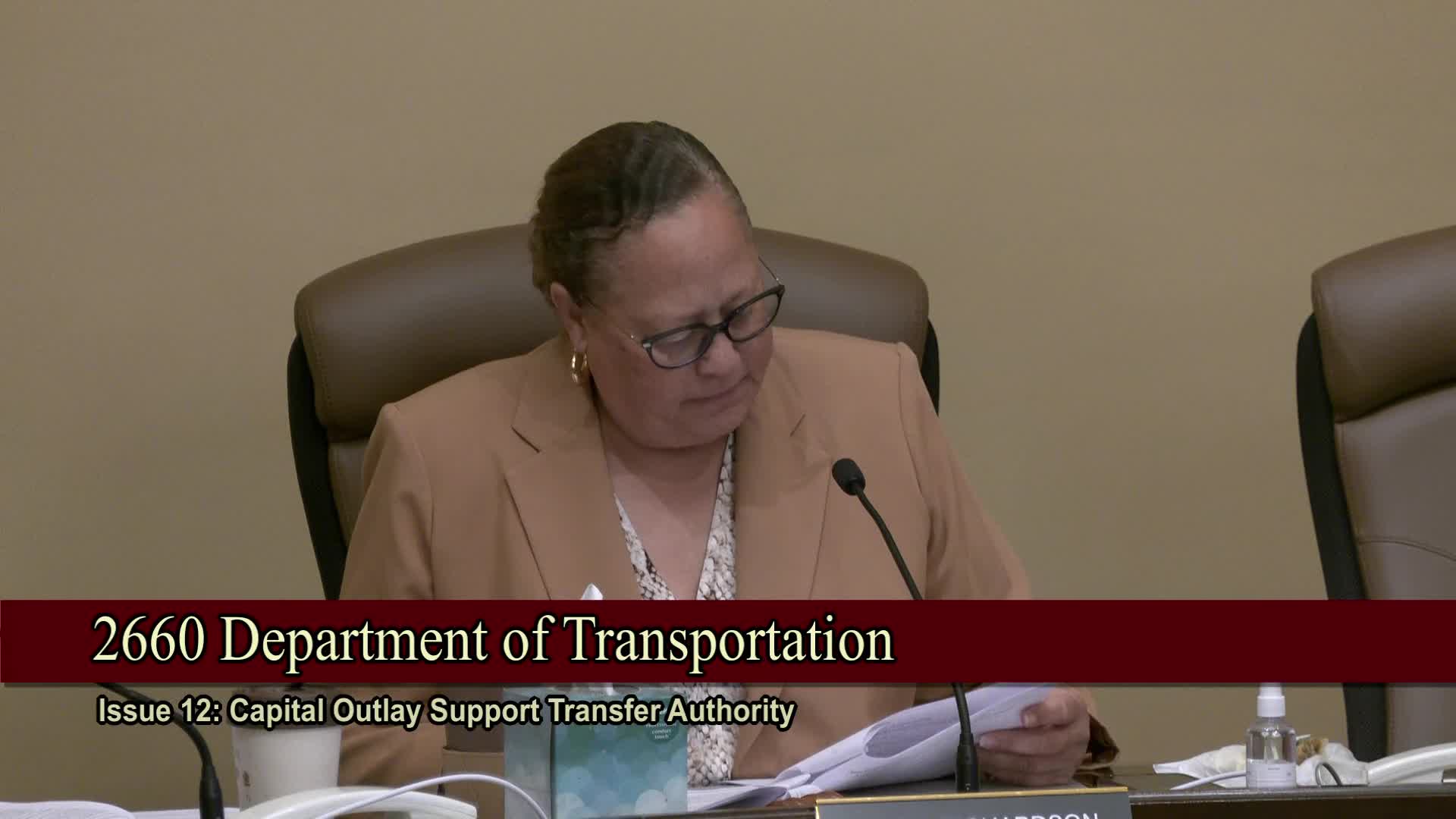
Caltrans seeks statutory clarification for capital outlay support transfer authority; LAO suggests narrower trailer‑bill language
